- Home
- About ANT
-
Products
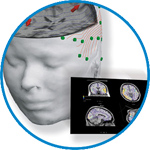
asa
asa is a highly flexible EEG/ERP and MEG analysis package with a variety of source reconstruction, signal analysis and MRI processing features.
.jpg)
eego mylab
The new frontier in multimodal brain research. With up to 16 kHz sampling rate, 256 EEG channels and unique software features, eego mylab gives you an unprecedented in-depth understanding of the human brain.
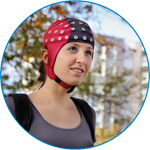
eego sports
eego sports offers complete freedom to collect high-density EEG data, bipolar EMG signals, and a variety of physiological sensor data, wherever and whenever required, with publish quality data in less than 15 minutes!
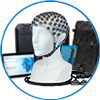
waveguard net
The waveguard net sets a new standard for research applications requiring high-density EEG data acquisition with quick preparation time, high flexibility, and subject comfort.
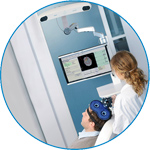
visor2
Our new and upgraded visor2 solutions integrate all the latest technologies for navigated rTMS, dual-coil navigation support, EEG-TMS recordings and pre-surgical evaluation for the highest quality in research and clinical procedures.
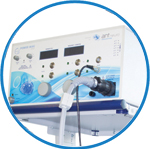
powerMAG ANT
The PowerMAG ANT 100 rTMS stimulator is designed for the specific needs of high-end TMS applications. Powerful high-frequency TMS as well as high precise single pulse and repetitive pulse protocols are combined in one single device.
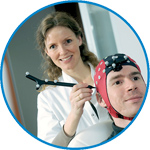
xensor
xensor offers the solution for digitization of 3D electrode positions. xensor takes care of the whole procedure; it records, visualizes and stores positions acquired with a dedicated digitizer.
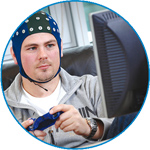
waveguard original
waveguard original is the cap solution for EEG measurements compatible with fMRI, MEG and TMS system. Use of active shielding guarantees performance in even the most demanding environments.
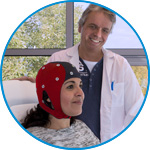
waveguard connect
waveguard connect EEG caps are a perfect match for hospitals and institutes aiming at reliable EEG, maximum uptime and great patient comfort! For optimal signal quality, the electrodes are made of pure, solid tin.
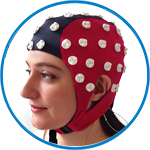
waveguard touch
waveguard touch is a dry electrode EEG cap. The unique Ag/AgCl coated soft polymer electrodes provide stable, research-grade EEG signals while maintaining subject comfort. The combination of these innovative dry electrodes and the industry-leading waveguard cap makes waveguard touch the best solution for dry EEG.
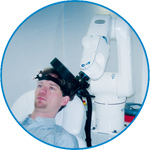
smartmove
smartmove allows planning of a complete TMS session ahead by defining stimulation sites based on anatomical MRI information and functional information like fMRI, PET or EEG/MEG.
Stay - References
- Support
- Events
- News
- Contact Us
You are here
Effects of transcranial magnetic stimulation of the rostromedial prefrontal cortex in obsessive–compulsive disorder: a randomized clinical trial
Effects of transcranial magnetic stimulation of the rostromedial prefrontal cortex in obsessive–compulsive disorder: a randomized clinical trial
New interventions are needed for obsessive-compulsive disorder. Here we present a randomized single-blinded, two-arm, parallel-group, sham-controlled clinical trial assessing the efficacy of prefrontal cortex stimulation in reducing obsessive-compulsive disorder symptoms and frontostriatal connectivity (ACTRN12616001687482). Conducted at a single academic center, the trial enrolled participants diagnosed with obsessive-compulsive disorder who underwent baseline clinical assessments and neuroimaging. The intervention comprised 20 weekday sessions of neuronavigated continuous theta burst stimulation of the frontal pole or sham. Participants and all staff assessing intervention outcomes were blind to the conditions. We enrolled a sample of 50 individuals (26 active continuous theta burst stimulation) who completed the neuroimaging and clinical assessments at the primary 4 week endpoint. Clinical data at the secondary 6 month endpoint were obtained from 46 participants (23 active). Symptoms of obsessive-compulsive disorder (primary outcome) decreased in both groups (active −4.35, P < 0.001; sham −5.92, P < 0.001), but there was no significant difference between groups (P = 0.33, ηp2 = 0.02). Likewise, there was no significant difference between groups in changes of frontal pole connectivity with the striatum (P = 0.09, ηp2 = 0.06). Changes in secondary outcomes (symptoms of anxiety and depression and localized frontal pole activity) did not differ between groups. Dropout rates did not vary between groups and the most common treatment-related adverse event in both groups was headache. Our findings suggest that frontal pole continuous theta burst stimulation is no different to sham in reducing obsessive-compulsive disorder symptoms. The absence of changes in brain activity prompts further evaluation of alternative stimulation protocols.

 Read more
Read more.jpg)




